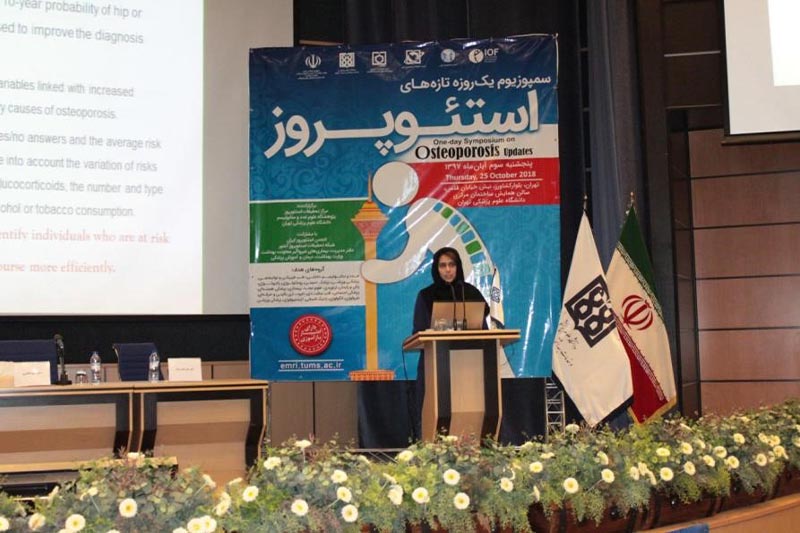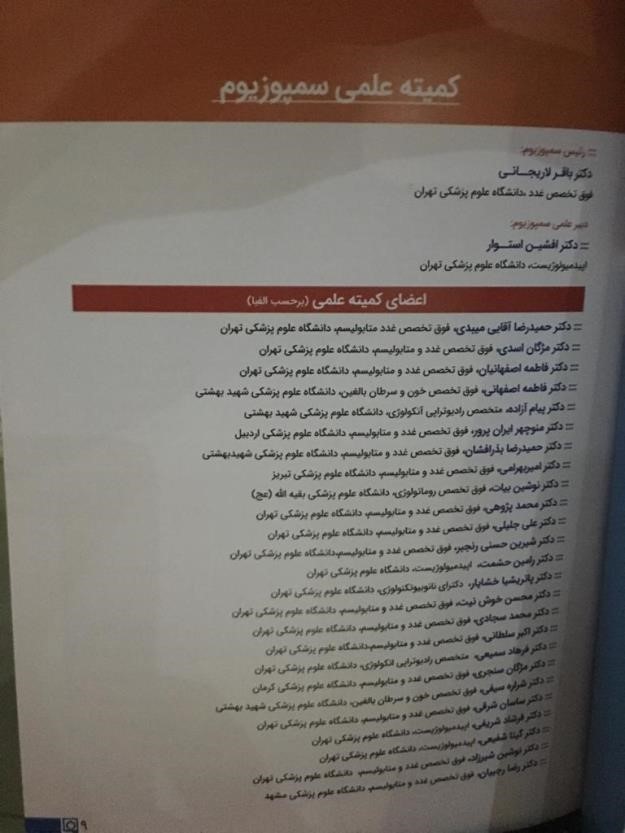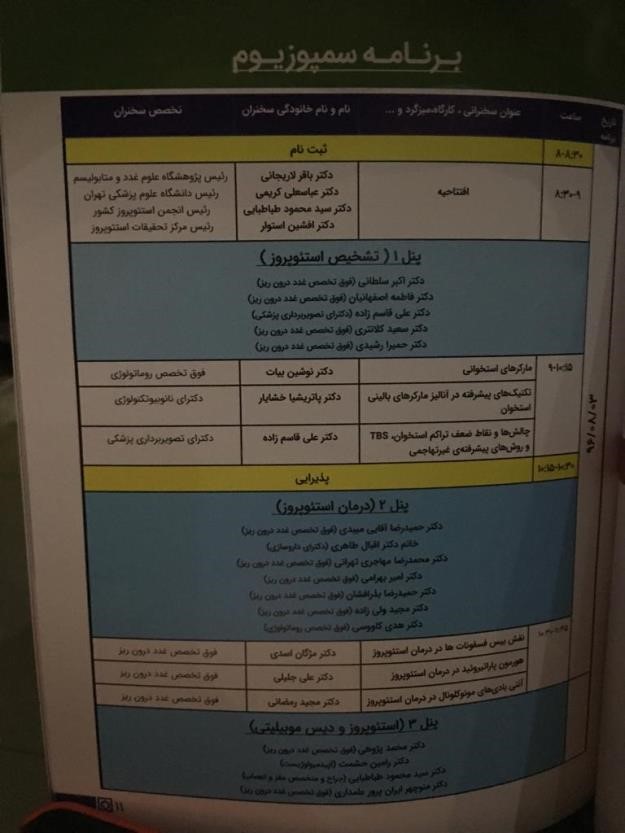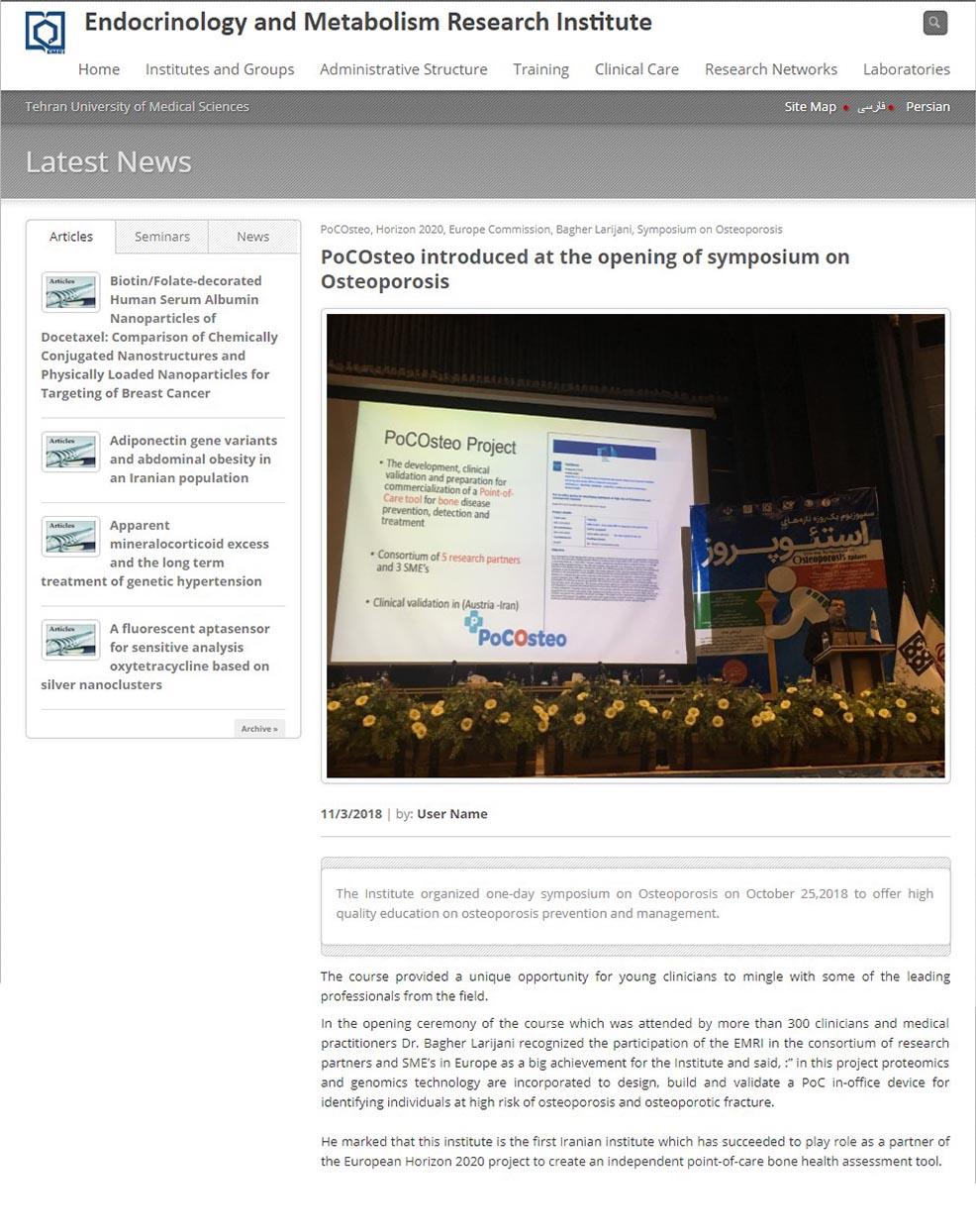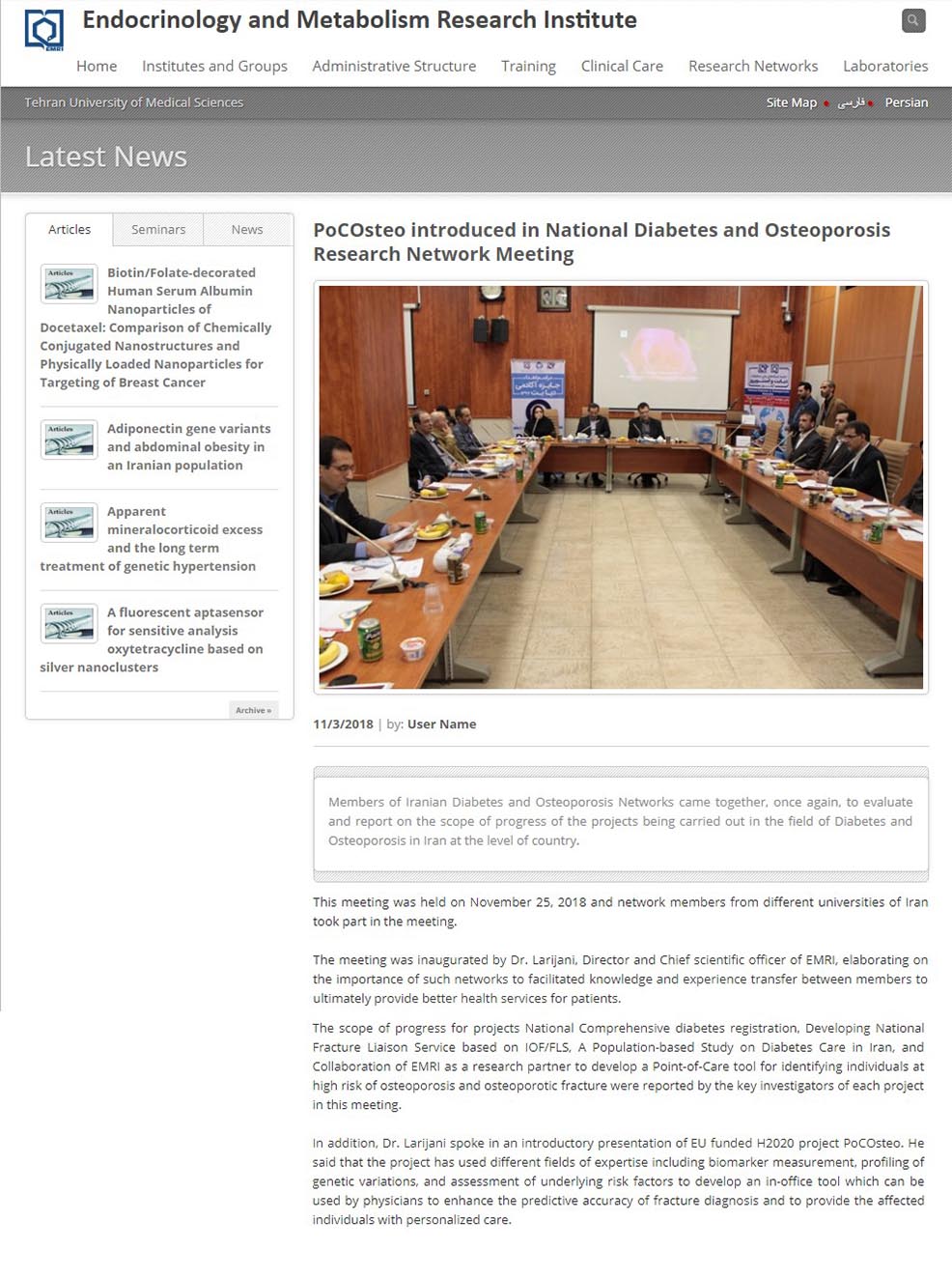New methods on bone marker analysis for osteoporosis
Paper on ‘New methods on bone marker analysis for osteoporosis’, presented by Dr MD Patricia Khashayar from the Universiteit Gent (UGent) during the Symposium on Osteoporosis in Tehran, Iran on 25.10.2018.
Links metioned in the report of Bagher
An Introduction of PoCOsteo in Osteoporosis Essentials Course
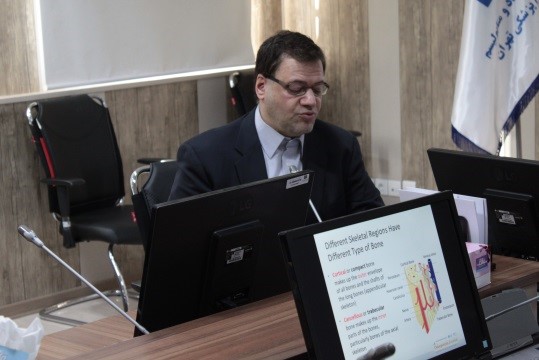
The institute has continued its work in health professional education and training through hosting the Osteoporosis Essentials course which is a new International Osteoporosis Foundation and International Society for Clinical Densitometry (ISCD) joint course, and EMRI is a Local Organizing Committee (LOC).
The course was held on October 23-24, 2018 covered the latest knowledge on densitometry, diagnosis and management of osteoporosis and the responsible staff of Osteoporosis in 30 medical universities who are the members of the National Osteoporosis Research Network from all over the country participated in the course.
While opening the course, Prof. Bagher Larijani marked PoCOsteo project realized by Horizon 2020 as an achievement for the Institute where a fruitful collaboration with European well-known universities and Institutions are actualized.
He described PoCOsteo as an in-office device for identifying individuals at high risk of osteoporosis and osteoporotic fracture which is capable of determining both the genetic predisposition and BTM values of osteoporosis from a single drop of blood at acceptable cost.
Dr. Larijani continued that EMRI is playing role as a research partner in the clinical validation phase of the project.
PoCOsteo introduced at the opening of symposium on Osteoporosis
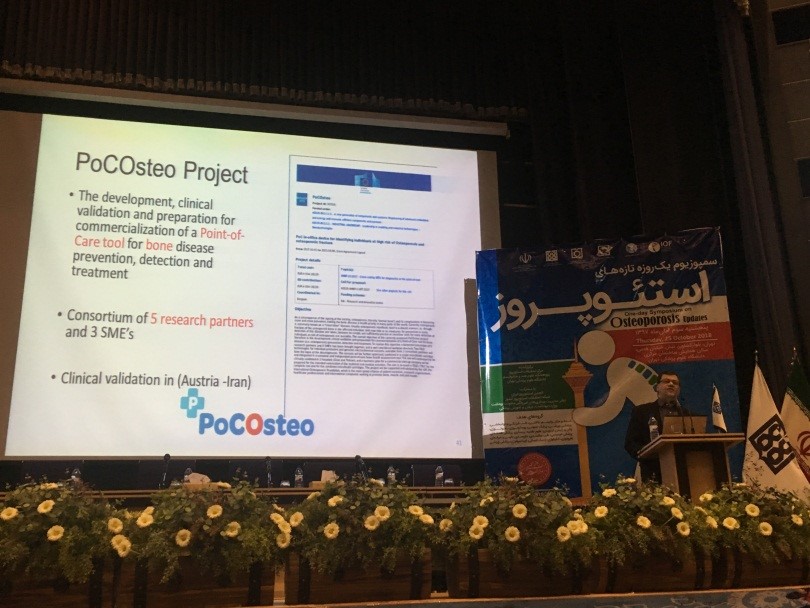
The Institute organized one-day symposium on Osteoporosis to offer high quality education on osteoporosis prevention and management.
The course provided a unique opportunity for young clinicians to mingle with some of the leading professionals from the field.
In the opening ceremony of the course which was attended by more than 300 clinicians and medical practitioners Dr. Larijani recognized the participation of the EMRI in the consortium of research partners and SME’s in Europe as an achievement for the Institute and said,” in this project proteomics and genomics technology are incorporated to design, build and validate a PoC in-office device for identifying individuals at high risk of osteoporosis and osteoporotic fracture”.
He marked that this institute is the first Iranian institute which has succeeded to play role as a partner of the European Horizon 2020 project to create an independent point-of-care bone health assessment tool.
PoCOsteo introduced in National Diabetes and Osteoporosis Research Network Meeting
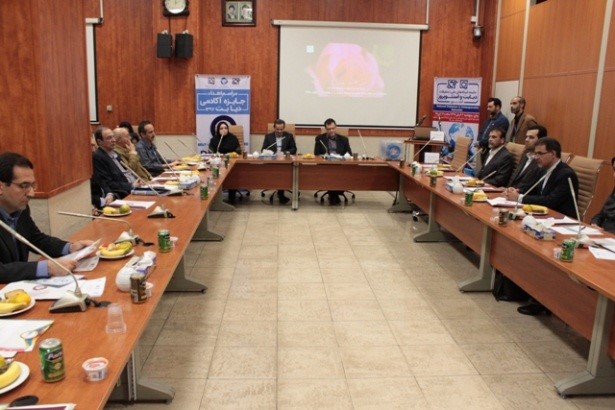
Members of Iranian Diabetes and Osteoporosis Networks came together, once again, to evaluate and report on the scope of progress of the projects being carried out in the field of Diabetes and Osteoporosis in Iran at the level of country.
This meeting was held on November 25, 2018 and network members from different universities of Iran took part in the meeting.
The meeting was started with Dr. Larijani, Director and Chief scientific officer of EMRI, elaborating on the importance of such networks to facilitated knowledge and experience transfer between members to ultimately provide better health services for patients.
The scope of progress for projects National Comprehensive diabetes registration, Developing National Fracture Liaison Service based on IOF/FLS, A Population-based Study on Diabetes Care in Iran, and Collaboration of EMRI as a research partner to develop a Point-of-Care tool for identifying individuals at high risk of osteoporosis and osteoporotic fracture were reported by the key investigators of each project in this meeting.
In this meeting, Dr. Larijani said, EU funded H2020 project PoCOsteo has used different fields of expertise including biomarker measurement, profiling of genetic variations, and assessment of underlying risk factors to develop an in-office tool which can be used by physicians to enhance the predictive accuracy of fracture diagnosis and to provide the affected individuals with personalized care.

